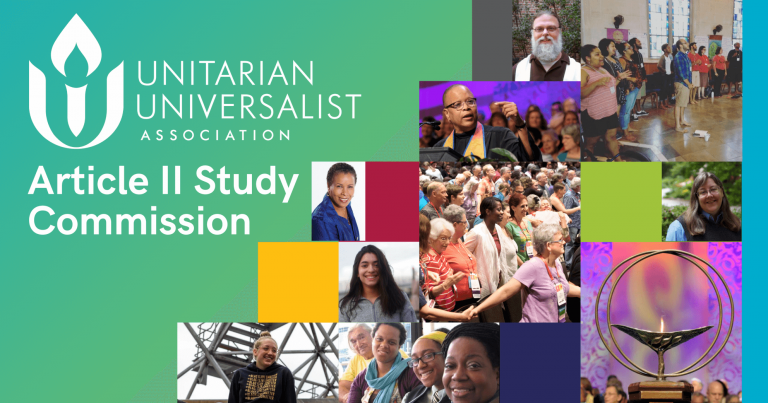Principles revised with an eye to what is “inspirational, memorable and poetic, inclusive, welcoming, and explicitly anti-racist”
For two years, a commission of the Unitarian Universalist Association (UUA) has been reviewing Article II of the association’s by-laws, which is where the principles, purposes, and sources of Unitarian Universalism are laid out. Today the commission released a full draft of a proposed revision of Article II.
The principles of Unitarianism, Universalism, and, since the 1961 merger, Unitarian Universalism, have been reviewed and revised many times. On this occasion, the moderators wrote, “The Board would like to see an Article II that is inspirational, memorable and poetic. The language should be inclusive and welcoming, and explicitly anti-racist,” reflecting significant efforts in the past several years to name racism as an evil that has beset us from without and within, and to broaden our language to reflect the inherent worth of all beings, not only humans. The then-moderators of the UUA, the Rev. Mr. Barb Greve and Elandria Williams, charged the commission with “articulat[ing] core UU theological values” and “propos[ing] any revisions that will enable our UUA, our member congregations, and our covenanted communities to be a relevant and powerful force for spiritual and moral growth, healing, and justice.”
Several feedback sessions are scheduled through early and mid-November for any Unitarian Universalist to share thoughts. The commission members suggest a practice for engaging thoughtfully:
This draft makes significant changes to Article II. We invite you to read it using one of the practices we have started following in our work:
- Read it the first time to observe how it makes you feel.
- Read a second time, observe what it makes you think.
- Finally read it a third time before thinking about any suggestions.
Together, we shape the future of our faith; what we say and do matters. As the commission was urged to do when charged, let us center love as we consider the draft and share our responses.

